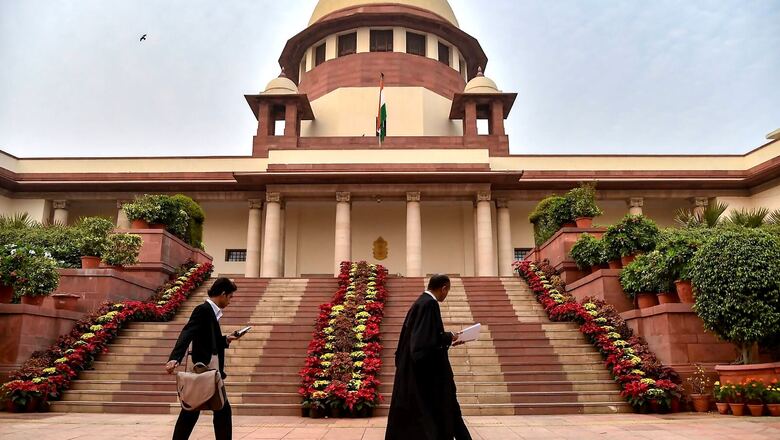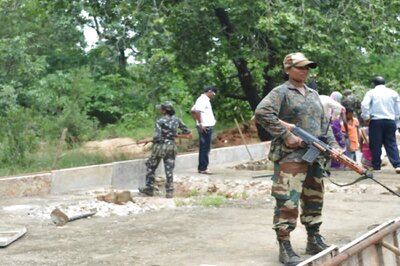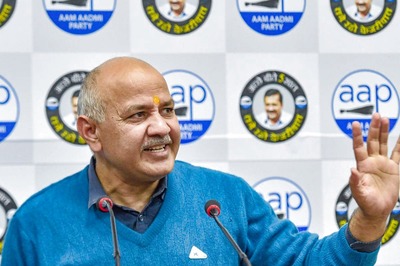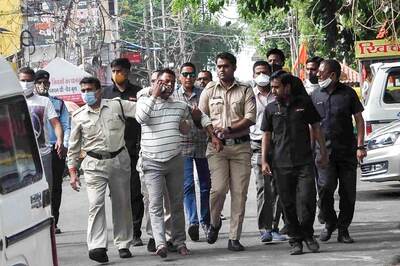
views
A two-judge bench of the Supreme Court on Thursday delivered a split verdict on a batch of petitions challenging the Karnataka High Court judgment refusing to lift the ban on hijab in educational institutions of the state.
While Justice Hemant Gupta dismissed the appeals, Justice Sudhanshu Dhulia allowed them, contending that “it’s a matter of choice, nothing more, nothing less”. The matter has now been placed before the Chief Justice of India for appropriate directions.
The tenure of current CJI UU Lalit ends on November 9 following which Justice DY Chandrachud will take over as the 50th Chief Justice of India.
As the legal stalemate over the politically sensitive issue continues, the ban on hijab in educational institutions of Karnataka is likely to stay in place.
What to Expect
Here’s a look at what is expected to follow on the legal front:
- A new bench will be constituted by the Chief Justice of India with three or more judges. The decision shall be taken by the CJI, who is the ‘master of the roster’ in the Supreme Court.
- Hearing will begin afresh before the new bench. The questions framed by Justices Gupta and Dhulia may guide the hearing before the new bench.
- The Karnataka High Court order is the valid legal position because there is no stay by the Supreme Court of India. The Karnataka government notification also stands.
- The petitioners may rely on the judgment handed by Justice Dhulia who said wearing hijab is protected under individual liberty and freedom.
- Similarly, the Karnataka government has the backing of the judgment handed by Justice Gupta and the Karnataka High Court.
- The urgency with which the court may hear the matter depends on ‘mentioning’ or requests made by the parties to the case and the discretion of the CJI.
What the Judges Said
At the outset while pronouncing the verdict, Justice Gupta, who was heading the bench, said: “There is divergence of opinion.”
While pronouncing the judgement, Justice Dhulia said the High Court had taken a wrong path and that wearing hijab is ultimately “a matter of choice, nothing more, nothing less”.
“The High Court took a wrong path. It is ultimately a matter of choice and Article 19(1)(a) and 25(1). It is a matter of choice, nothing more and nothing less,” he said.
He said his main thrust in the judgment is concept of essential religious practice which was not essential to the dispute. Saying that his focus was on education of the girl child, especially in rural areas, Justice Dhulia asked, “Are we making her life any better? That was a question in my mind… have quashed the government order of February 5 and have ordered the removal of the restrictions.”
The Case So Far
The Supreme Court bench had reserved its verdict on the pleas on September 22 after hearing arguments in the matter for 10 days. On March 15, the High Court had dismissed the petitions filed by a section of Muslim students of the Government Pre-University Girls College in Karnataka’s Udupi seeking permission to wear the hijab inside classrooms, ruling it is not a part of the essential religious practice in Islamic faith.
During the arguments in the apex court, a number of counsel appearing for the petitioners had insisted that preventing Muslim girls from wearing the hijab to the classroom will put their education in jeopardy as they might stop attending classes.
Counsel for the petitioners had argued on various aspects, including on the state government’s February 5, 2022 order which banned wearing clothes that disturb equality, integrity, and public order in schools and colleges.
Some advocates had also argued that the matter be referred to a five-judge constitution bench. On the other hand, the counsel appearing for the state had argued that the Karnataka government order that kicked up a row over hijab was “religion neutral”.
Insisting that the agitation in support of wearing hijab in educational institutions was not a “spontaneous act” by a few individuals, the state’s counsel had argued in the apex court that the government would have been “guilty of dereliction of constitutional duty” if it had not acted the way it did.
The state government’s order of February 5, 2022 was challenged by some Muslim girls in the high court. Several pleas had been filed in the apex court challenging the High Court verdict.
Read all the Latest News India and Breaking News here




















Comments
0 comment